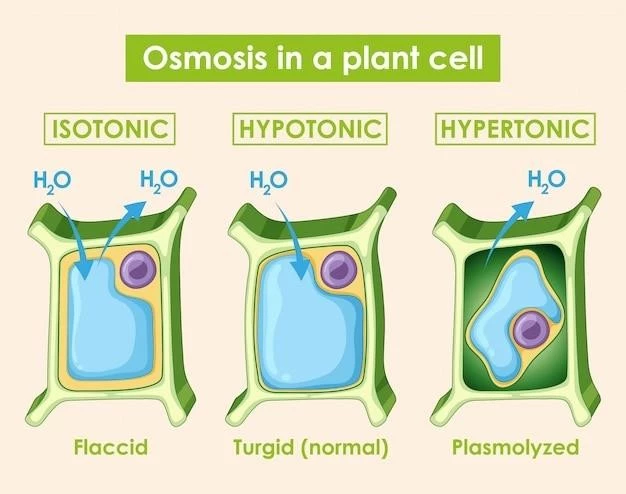Lysosomal Glycogen Storage Disease with Normal Acid Maltase Activity
Lysosomal glycogen storage disease with normal acid maltase activity is a progressive disorder caused by genetic mutations affecting lysosomal enzymes. It leads to abnormal storage of glycogen in tissues due to enzyme deficiency, disrupting lysosomal function and cellular metabolism.
Overview of Lysosomal Storage Disorders
Lysosomal storage disorders are a group of genetic diseases characterized by defects in lysosomal enzymes, leading to the accumulation of undigested substrates within lysosomes. These disorders affect various metabolic pathways and cellular functions, impacting multiple organs and tissues. The abnormal storage within lysosomes results from deficiencies in enzymes responsible for breaking down complex molecules.
The lysosomal transport system plays a crucial role in maintaining cellular homeostasis by facilitating the delivery of molecules to lysosomes for degradation. When there is a defect in lysosomal enzymes, substrates cannot be properly processed, leading to lysosomal accumulation and cellular dysfunction. This abnormal storage disrupts metabolic processes and cellular activities, causing a wide range of symptoms depending on the specific enzymes affected.
Lysosomal biogenesis and membrane fusion are essential processes for proper lysosomal function. Impairments in lysosomal targeting can result in the inefficient degradation of substrates and the accumulation of undigested material within cells. This dysregulation can lead to the development of lysosomal storage disorders, including lysosomal glycogen storage disease, where glycogen accumulates in tissues due to deficiencies in lysosomal enzymes.
Understanding the Disease⁚ Lysosomal Glycogen Storage Disorder
Lysosomal glycogen storage disorder with normal acid maltase activity is a rare condition characterized by the abnormal accumulation of glycogen within lysosomes. This disorder arises from genetic mutations affecting lysosomal enzymes responsible for glycogen degradation.
Individuals with this disorder experience muscle weakness and a range of progressive symptoms due to the disruption in lysosomal function caused by enzyme deficiencies. The impaired breakdown of glycogen within lysosomes hinders normal cellular metabolic pathways, leading to the build-up of glycogen and cellular dysfunction.
As a result of the lysosomal enzyme deficiency, there is an abnormal storage of glycogen in various tissues, impacting the function of organs such as the muscles and liver. The neurological symptoms observed in affected individuals stem from the effects of lysosomal accumulation on neuronal cells and their communication pathways.
Understanding the molecular mechanisms underlying lysosomal glycogen storage disorder is crucial for developing targeted therapies to address the enzyme deficiencies and restore lysosomal function. Research into enhancing lysosomal targeting and enzyme activity offers promising avenues for the treatment of this progressive disease.
Role of Lysosomal Enzymes in Metabolic Pathways
Lysosomal enzymes play a vital role in cellular metabolism by facilitating the breakdown of various macromolecules into their constituent parts. These enzymes act within lysosomes to degrade complex molecules such as proteins, lipids, glycogen, and nucleic acids into simpler forms that can be reused by the cell.
Specifically, in lysosomal glycogen storage disorder, the deficiency of enzymes involved in glycogen metabolism leads to the accumulation of glycogen within lysosomes. This disrupts the normal metabolic pathways that rely on the breakdown of glycogen for energy production and cellular processes.
Enzymes such as glucosidases and glucocerebrosidases are critical for breaking down glycogen and other substrates into glucose and other metabolites. When these enzymes are impaired, the normal metabolic flow is disrupted, resulting in the abnormal storage of glycogen and the manifestation of symptoms associated with lysosomal glycogen storage disorder.

Understanding the interplay between lysosomal enzymes and metabolic pathways is essential for deciphering the mechanisms underlying lysosomal storage disorders. By elucidating how enzyme deficiencies impact cellular metabolism, researchers can develop targeted therapies to restore normal lysosomal function and alleviate the accumulation of glycogen within lysosomes.
Mechanisms of Disease Progression
The progression of lysosomal glycogen storage disease with normal acid maltase activity is driven by the underlying genetic mutations that impair lysosomal enzymes involved in glycogen degradation. These mutations disrupt the normal function of lysosomes, leading to the gradual accumulation of glycogen within cells.
As the disease advances, the continuing buildup of glycogen results in widespread cellular dysfunction and tissue damage. The progressive nature of the disorder is linked to the insidious effects of lysosomal accumulation on metabolic pathways and cellular activities, impacting various organs and systems throughout the body.
Furthermore, the mechanisms of disease progression involve the exacerbation of muscle weakness, neurological symptoms, and other clinical manifestations as the lysosomal storage disorder advances. The persistent disruption of lysosomal function due to enzyme deficiencies perpetuates the cycle of abnormal storage and cellular impairment.
Understanding the intricate molecular mechanisms driving the progression of lysosomal glycogen storage disease is essential for developing targeted interventions to slow or halt the degenerative process. Research focused on elucidating the pathways involved in disease progression offers hope for effective treatments that address the root causes of lysosomal dysfunction and glycogen accumulation.
Clinical Manifestations and Neurological Symptoms
Lysosomal glycogen storage disease with normal acid maltase activity presents a spectrum of clinical manifestations affecting various systems in the body. One of the hallmark symptoms is muscle weakness, which may progress over time and impact mobility and physical function.
Neurological symptoms are also common in individuals with this disorder, stemming from the effects of lysosomal dysfunction on neuronal cells. These symptoms may include cognitive impairment, developmental delays, seizures, and movement disorders, all of which can significantly impact quality of life.
As the disease advances, affected individuals may experience complications related to the accumulation of glycogen in tissues such as the liver, heart, and muscles. Cardiomyopathy, hepatomegaly, and respiratory difficulties are among the potential clinical manifestations that can arise due to the metabolic disturbances caused by lysosomal glycogen storage disorder.
Early diagnosis and management of lysosomal glycogen storage disease are crucial to address the diverse clinical manifestations and neurological symptoms associated with the disorder; Comprehensive care that incorporates medical interventions, physical therapy, and supportive treatments can help mitigate the impact of the disease on affected individuals and improve their overall well-being.
Treatment Approaches and Future Perspectives
Current treatment approaches for lysosomal glycogen storage disease with normal acid maltase activity focus on managing symptoms and improving quality of life for affected individuals. This may include strategies to address muscle weakness, neurological symptoms, and complications related to glycogen accumulation in organs.
Enzyme replacement therapy (ERT) is a promising treatment option that aims to replace the deficient lysosomal enzymes, facilitating the breakdown of stored glycogen and potentially slowing disease progression. ERT can help alleviate some of the symptoms associated with lysosomal glycogen storage disorder and improve overall function.
Research into gene therapy approaches holds future promise for addressing the underlying genetic mutations that cause lysosomal enzyme deficiencies. By correcting these mutations at the genetic level, gene therapy has the potential to restore normal lysosomal function and prevent the abnormal accumulation of glycogen within cells.
Moreover, advancements in personalized medicine and precision therapies may offer tailored treatment strategies based on individual genetic profiles and disease characteristics. By targeting specific pathways involved in lysosomal dysfunction, researchers aim to develop more effective and targeted interventions for lysosomal glycogen storage disease.
Future perspectives in the field of lysosomal storage disorders include continued research into novel treatment modalities, biomarker development for early diagnosis, and enhanced understanding of the molecular mechanisms driving disease progression. These efforts are essential for advancing therapeutic options and improving outcomes for individuals affected by lysosomal glycogen storage disorder.
